Eight Scottish fintech companies to watch
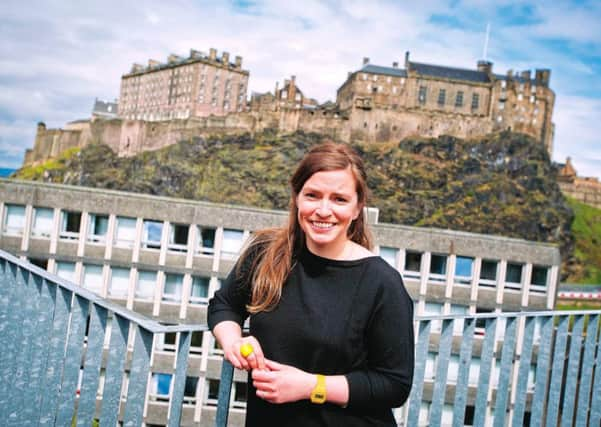

What does it do?
“We use data to transform relationships in commercial insurance by enabling brokers and insurers to have the right conversation at the right time. Our independent platform provides insurers with a single, searchable view of market opportunities and gives brokers more attention, earnings and insight from their data.”
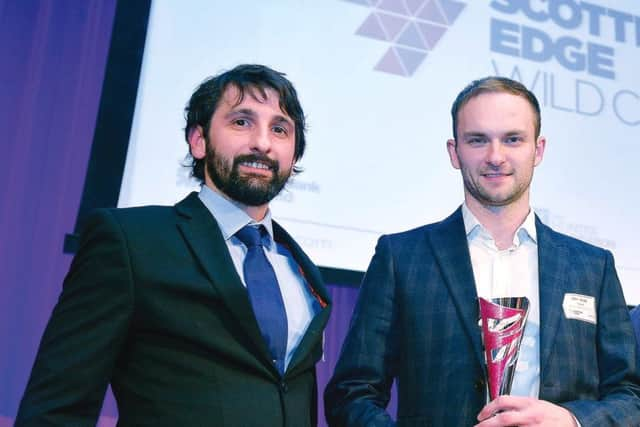

What has been your greatest success/biggest challenge?
Fraser Edmond, CEO: “The pace at which we have built a great team and delivered our own platform. Our biggest challenge has also been a success as we now gather momentum.
Selling a new concept and business model and all its benefits is not easy, but the rate at which we have signed up leading insurers and brokers to the platform is testament to the demand for what we are doing.”
What’s your ambition for the next two to three years?
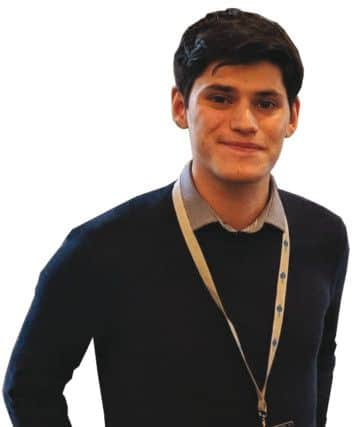

“To build a leading and strong position in the UK, adding real value for our business partners. We would also like to have made our first steps into international markets.”
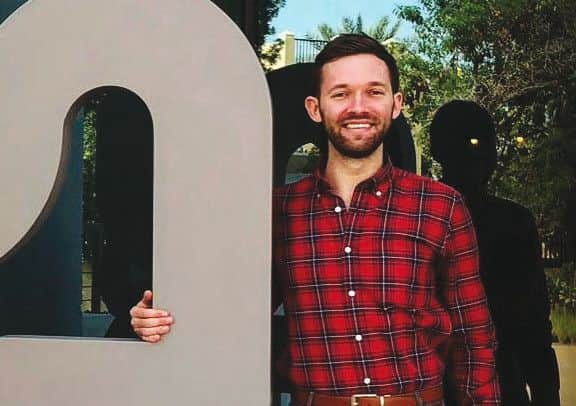

What does it do?
Monily is “a machine-learning business that takes the data from email receipts and enriches banking transactions – via a secure model without data going to the cloud”. It believes banks’ aging systems do not produce enough information on transactions for modern customers – and wants to allow customers to identify bank transactions much more easily, to aid consumer convenience and flag up suspicious activity quickly and clearly.
What has been your greatest success/biggest challenge?
CEO Adrian James: “We have designed the solution so it is entirely secure. Data stays on the smartphone and nothing goes to the cloud, making it totally private. It uses Apple’s own machine-learning solution on the smartphone (Monily is the first company in the world to do this). Our biggest challenge is getting over UK financial institutions’ fear of email. Younger generations do not use email to communicate (preferring WhatsApp) and companies like Capital One in the US are already doing this for refund pricing guarantees.”
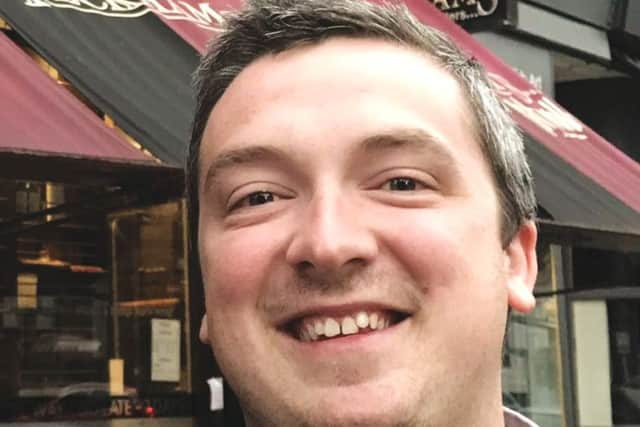

What’s your ambition for the next two to three years?
“We aim to grow an installed base of Business Banking and Personal Finance Management App customers before taking this into Retail Banking. Our desire is to socialise the idea within people’s daily lives.”
What does it do?
When Soar founder Andrew Duncan was running Swarm Online, he was approached by a number of credit unions looking for mobile apps. This sparked a curiosity and after a closer look into the market, Andrew found they were hugely underserved in terms of technology. The idea for Soar was born and it started on a journey to give ethical institutions the technology they needed in an ever-evolving market.
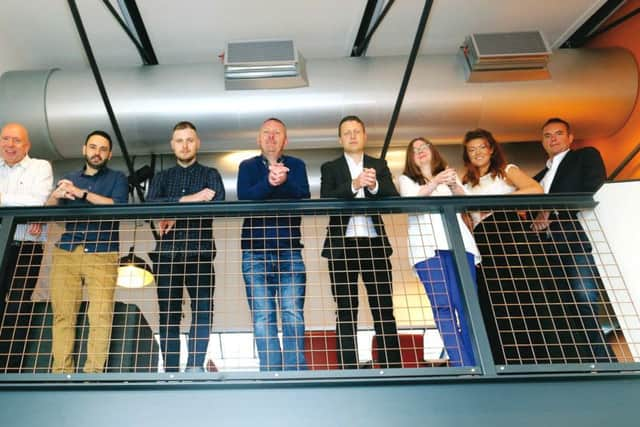

What has been your greatest success/biggest challenge?
“Our biggest success so far has been on-boarding and collaborating with the number of credit unions that we have, while continuing to develop our technology. Having only started in 2017, we already have 10 credit unions on board, including the largest credit union in the UK and have grown our team to 15 members. One of the biggest challenges we have faced in our journey so far has been entering into a market where many have been closed off from technology and have shown a reluctance to change. This is something we are constantly working to overcome but we are making great progress with this.”
What’s your ambition for the next two to three years?
“Over the next few years, we will be looking to offer our technology to even more ethical institutions. We are currently working with credit unions but already having conversations with other organisations such as CDFIs [Community Development Financial Institutions]. Our goal is and always has been to offer technological innovation to the entire ethical banking sector so they can further help their communities. This is part of our social purpose.”
What does it do?
It helps empower a cashless society of the future by building mobile payment solutions with banks and merchants. Founder and chief executive Craig Buchan says: “Seeing the global trend towards mobile payments was the light bulb moment, but the realisation of huge volumes of cash still dominating the global economy was the call to action.”
What has been your greatest success/biggest challenge?
“Expanding the business overseas early in the journey, which few Scottish start-ups do, is a big success. After moving the commercial side of the business to Dubai through 2017, we secured a strategic partnership with Visa, to drive cashless initiatives together. Along with onboarding merchants internationally, that’s what we reflect on as success so far.
“One of the challenges is that we don’t always get to operate at the pace we want when engaging with banks, corporate partners, and governments. Developing a layer of patience in how we manage projects has been critical.”
What’s your ambition for the next two to three years?
“To continue on the pathway we’ve created in the Middle East and Africa by securing further strategic partnerships that bring profit and the rapid deployment of our software. We have other pins on the map where we expect to be in operation by 2021.”
What does it do?
CU Apps develops mobile apps for credit unions, based on creating better user-facing software. It seeks to help them compete with large financial institutions by meeting and exceeding members’ expectations in their digital experience. Credit unions fit well with the personal values of CU Apps’ founders.
What has been your greatest success?
Declan McGallagly, co-founder: “Our biggest success so far has been the chatbot developed for 1st Class Credit Union. They were the first credit union to use our chatbot – to help their merger with PCS Credit Union, and the volume of queries this would create. We were able to deliver the chatbot in time for merger and found it was able to answer the majority of queries through social media and the mobile app without staff involvement. This allows credit union staff to focus their time on members who need help the most.”
What’s your ambition for the next two to three years?
“To expand the uptake of our products by continuing to deliver the latest innovations in consumer banking technology. We are also working on collaborations in markets such as the US where the credit union movement is more advanced and there is the greatest appetite for technology. By working with credit unions to deliver on these ambitions, we hope to give credit unions a competitive advantage by allowing them to offer the best digital experience in consumer finance.”
What does it do?
BlockStar aims to make the benefits of cryptocurrencies more accessible to people in everyday life. BlockStar believes crypto is a huge opportunity to change the way people think about money and is developing its Zumo platform to help that.
What has been your greatest success/biggest challenge?
Paul Roach, founder: “Our biggest success to date has been raising our first two seed investment rounds to support the development of our Zumo SDK and app. We have taken on a huge development challenge to merge ‘old’ and ‘new’ money on a single platform while maintaining full regulatory compliance.”
What’s your ambition for the next two to three years?
“To build a global company. On launching our Zumo platform this summer, we aim to show that crypto can be usable in everyday scenarios, by all. Eventually we want to create a new financial platform that has the potential to democratise financial access globally.”
What does it do?
ShareIn offers tailored ‘white label’ investment platforms to enable businesses to find funding through a network of investors. It also looks after financial regulation for the client, promising to “get to market months faster and at a much lower cost”.
What has been your greatest success/biggest challenge?
Jude Cook, chief executive and co-founder: “We have been profitable for a couple of years and have passed £1 million in revenue. We have created a real thing which generates money and provides jobs and which people want to buy.
“The biggest challenge is when you have never run a business before, you are learning all the time as you grow – and you worry about clients and the team.”
What’s your ambition for the next two to three years?
“We are at a really interesting crunch point for ShareIn. We have just got our regulatory permission to hold client money and will launch a payment solution on Monday, 1 July and become a payment provider in our own right. That will really open up what we do and we will be really looking to grow from the second half of this year. We are in an office with 25 people and have space for 50 – and we want to fill it!”
What does it do?
On its Twitter account, Nexves asks: “Want to pay the lowest price for all your bills and expenses, without doing a thing, forever, for free?” It was born when Chris Herd found his gran was paying four times more than he was for a poorer TV package. He identified “asymmetric information” as the problem (where one party to a financial transaction has greater material knowledge than the other). Herd wants to help people pay the lowest price possible and create “the Netflix of financial services”.
What has been your greatest success/biggest challenge?
Chris Herd: “Receiving investment from the founder of one of the UK’s most successful businesses and winning a prestigious £10,000 EDGE award. Our biggest challenge has been establishing the business from a location, Aberdeen, more famous for oil than fintech businesses.”
What’s your ambition for the next two to three years?
“Previous generations’ assets were physical, in future they’ll be digital. But the infrastructure to own and control our digital assets and personal data doesn’t exist. It is in silos, leveraged by conglomerates to exploit our privacy and attention to enrich themselves. Our ambition is to create Digital Asset Banks to let users be the only people to own their holistic virtual identities, allowing them to unlock value that is currently impossible.”